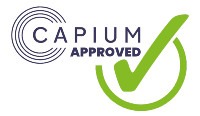With hours of work, patients to take care of, and legislation at every turn, running your own doctor’s practice is a time-consuming profession.
So when it comes to balancing the books, what do you need to know? And could cash basis accounting be simpler than using the accrual method? Let’s find out.
3 things doctors need to know about cash basis accounting
1. What is cash basis accounting?
There are two main accounting methods doctors can use on their self-assessment returns:
- accrual basis accounting (also known as traditional accounting)
- cash basis accounting
Doctors or practices that use accrual basis accounting must recognise earnings and expenses the moment they’re incurred — even when payments haven’t been finalised.
When you use cash basis accounting, you only need to declare earnings and expenses when they actually come in and out.
While the traditional accounting method can give you a greater understanding of your finances, it can be difficult to implement.
When you work in a high-pressure industry like healthcare, you may not have time to keep track of complicated transactions like accounts receivable and payable.
The cash basis is a simplified method that can save you time and stress, as well as make it easier to see exactly how much cash you have at any given time.
For small practices, locums and GPs, this can be a real time-saver if done correctly.
2. Can doctors use the cash basis?
You can usually use the cash basis if you run a small self-employed business (as a sole trader or partnership) with a turnover of £150,000 or less a year. So, if you’re a self-employed locum, for example, or running a small private practice, it could be an option for you.
Limited companies and practices exceeding the £150,000 threshold will need to use the accrual basis of accounting instead.
HMRC also prevents certain types of businesses from using the cash basis, and for doctors, it’s important to note that this sometimes includes partnerships, depending on the circumstances. You can find a full list on the government website.
Because cash basis accounting is not the default, you’ll need to decide whether to use it on your self-assessment tax return beforehand.
3. How does the cash basis work for doctors?
Let’s say you run a small private practice and offer services to patients on a fee-for-service basis. You see patients throughout the year, but don’t always receive payment immediately.
Under accrual accounting, you would recognise revenue when services are rendered, regardless of whether payment has been received. This means you’d have to pay taxes on the revenue earned, even if you haven’t received payment yet.
However, under cash basis accounting, you’d only recognise revenue when payment is actually received. This would delay the recognition of revenue and therefore delay the payment of taxes on that revenue until the cash is actually received.
For example, if you provided services worth £1,000 in March but didn’t receive payment until April, you would only recognise that £1,000 in revenue in April under cash basis accounting. This would delay your tax liability on that revenue until the following tax year.
The same also applies to your expenses – you’ll only record anything you purchase for your practice, like medical supplies, office equipment, or even energy bills, once you’ve actually paid for them. Money you owe isn’t counted until you pay it.
Getting professional support
Remember, although HMRC expects anyone using the cash basis to have more simplified accounting than accruals, you’re still expected to keep proper records to complete an accurate self-assessment tax return.
Ultimately, the decision to use cash or accrual is up to you and your practice.
If you have a high turnover, or are more rigorously regulated, accrual accounting could be more appropriate. But smaller practices, locums and GPs can reap the benefits of cash basis accounting – saving time, and only paying tax when needed.
If you want to change from the accrual basis to the cash basis, there are some transitional rules you’ll need to follow. As accountants, we can ensure you stay compliant when you switch over.
Get in touch with us today to talk about cash basis accounting.


